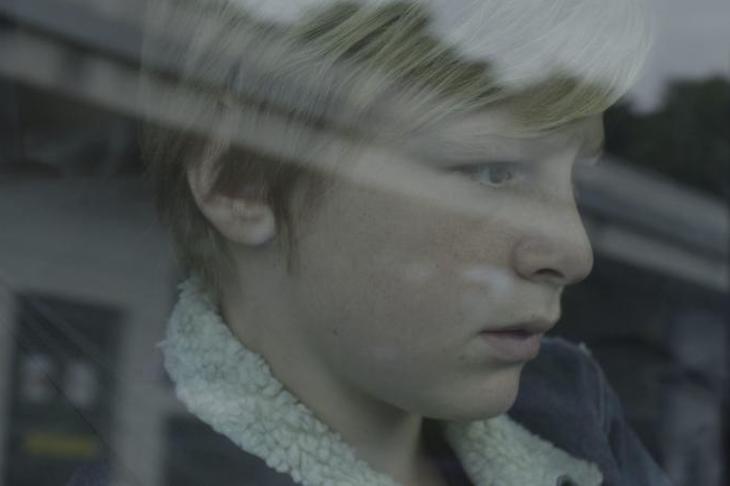Custody is both social realism and a thriller and it’s terrific. It is smart, beautifully acted, never crass about the subject in hand (domestic abuse), and is one of those films that will have you totally gripped while you’ll also be longing for it to end, as it’s so unbearably tense. I swear my heart as good as stopped several times. It’s written and directed by Xavier Legrand, who handles both genres with supreme elegance. Or, to put it another way, it’s like a Ken Loach film that’s been hijacked by Stephen King, but seamlessly. (‘Mind if I have a go, Ken?’, ‘Be my guest, Steve’.)
This is Legrand’s second film after Just Before Losing Everything (2013), which was only 30 minutes long, but earned him an Oscar nomination. It followed Miriam (Léa Drucker), a wife fleeing from her violent and controlling husband, Antoine (Denis Ménochet). Domestic terrorism is reprised here, as are the characters, and the cast is the same, but it isn’t necessary to have seen the first film. You’d just know who to believe, unless Antoine has truly changed? Could he have? Violent men are always great manipulators and, here, Legrand uses the same mechanism to manipulate us too. Smart, like I said.
Custody, which won the Silver Lion at Venice, opens in the social realist register with Miriam and Antoine sitting across from the family law judge who will now decide on custody of Julien (Thomas Gioria), their 12-year-old son. (They also have an older daughter, but as she’s about to turn 18, she’s of legal age, so spared this ordeal.) Miriam says Antoine is a monster, in effect, but she’s timid and not that forceful. Julien has written a letter saying he wants nothing to do with his father, which the judge reads aloud. But Antoine acts nice as pie, lays on the charm. He is a loving father, he insists. Hasn’t he left his job and moved so as to be near his son? Because Miriam has never pressed charges, so cannot ‘prove’ her claims against Antoine, and because the judge has not seen Just Before Losing Everything, she awards Antoine weekend visitation rights. Oh boy. But maybe — maybe — it will be OK this time? There. There, it’s happening again.
This is a film that exploits domestic violence as a premise but it isn’t exploitative. No physical violence is shown, so it’s not as if you are forced to sit through Miriam getting punched in the face or anything. This isn’t Nil by Mouth or What’s Love Got to Do With It or any of those. It’s all about the fear; the fear women and children have to live with in these circumstances. Nothing is spelled out, but we understand. We understand much about Antoine simply by the way his parents behave around him, for example. And we understand the importance of Miriam’s address being kept secret… but will Julien be able to prevent his father wheedling it out of him? The scenes between Julien and Antoine are as unbearably painful as they are unbearably tense.
The suspense builds, but apart from the final moments perhaps, which are pure Stephen King, it is never melodramatic. There isn’t even any soundtrack music to get in the way. Instead, it’s accentuated everyday noises (car indicators; the intercom; a lift) as Legrand keeps it tethered to what feels like the real world and a woman desperately trying to think what to do for the best — how do you do that? How do you protect your family from such a man? — while he veers from rage to self-pity and back again. Both lead performances are outstanding. Drucker brings vulnerability to Miriam, but also strength, while Ménochet is menacing, but naturalistically so, rather than cartoonishly, and you do get where his character is coming from. He doesn’t have a problem. It’s just that everyone else is plotting against him.
The film isn’t flawless. For instance, you will wonder why Miriam hasn’t ever pressed charges. And when Antoine arrives to stay with his parents, and happens to unpack a hunting rifle from his boot, you know this has to be Chekhov’s gun. But the tension is superb. My knuckles went pure white and have yet to return to full colour, I swear.






Comments